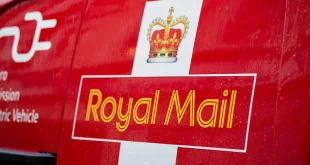If Jonathan Reynolds was expecting a honeymoon period as the new business secretary, a glance at the mounting list of issues that require his attention will quash that idea. From a potential renationalisation to angry steelworkers and posties, Reynolds has an overflowing in-tray.
So acute are some of the problems that Keir Starmer’s chief of staff, Sue Gray, prepared an internal dossier, described as “Sue’s shit list” by some, which included the potential collapse of Thames Water among other issues including failing councils and prison overcrowding. Here, we examine some of Reynolds’s most pressing priorities.
Tata Steel’s job losses
Reynolds is expected to meet executives from Indian-owned Tata Steel as early as Monday. In an awkward twist of timing, the first of two blast furnace closures at its vast Port Talbot steelworks took place on Friday, with the second due in September – after strike action was narrowly avoided – putting 2,800 jobs under threat.
Tata hopes Labour will honour a £500m subsidy, part of £3bn pledged to the industry, raising hopes that jobs can be protected as a new electric arc furnace is built on the site, to be finished in 2027.
Chris Rowley, an emeritus professor at Bayes business school, is not optimistic. “The recent threat of strike action ended maybe because of a belief and hope that the election of Labour will persuade the owners to keep a furnace operating until the future one is actually built,” he says.
“Sadly, without the new government offering serious amounts of new money, it seems more likely that the best the talks will result in is shifting deckchairs on the deck.”
Meanwhile, Labour has been briefed on the peril faced by another industrial stalwart, the Short Brothers factory in Belfast, which is caught up in the fallout from Boeing’s $4.7bn takeover of Short’s owner, Spirit Aerosystems.
Thames Water’s troubles
By calling a surprise July election, Rishi Sunak has inadvertently ensured that the unfolding troubles at Thames Water – and its potential temporary nationalisation – will receive significant focus during Labour’s first week.
Investors and executives had been keenly awaiting a draft view on water companies’ five-year business plans from the industry regulator, Ofwat, in June but its price-review announcement was delayed by the election and will now take place on Thursday.
The review will indicate by how much Thames will be allowed to raise bills, and whether its £19.7bn investment plan, intended in part to fix leaky pipes and prevent sewage spills, will be approved.
Before that, Thames will announce its annual results on Tuesday, laying bare the state of its tattered finances. Its chief executive, Chris Weston, may face questions over the board’s handling of the situation, after the Guardian revealed that it had approved a £150m dividend just hours before announcing that shareholders had U-turned on £500m of pledged funding.
Labour could soon be forced to decide whether to temporarily nationalise Britain’s biggest water company, which is creaking under £15.6bn of debt, the bulk of which could be added to the public purse. Reynolds has said there “should be a solution” that avoids nationalisation, without specifying what – although it could involve a mixture of public and private money.
Royal Mail takeover
Labour has appeared relatively passive about the news that the biggest shareholder in Royal Mail’s parent company, the Czech billionaire Daniel Křetínský, is planning to take the 508-year-old postal group private.
International Distributions Services’ board recommended shareholders accept the 370p offer from Křetínský’s EP Group, just weeks after saying that his original 320p offer significantly undervalued the group. The £3.57bn bid represents a premium to the price before the takeover interest emerged, and to the 330p the group was privatised at in 2013, but is far lower than highs witnessed during the pandemic.
Analysis and opinion on the week’s news and culture brought to you by the best Observer writers
after newsletter promotion
The takeover comes at a politically delicate time for Royal Mail, which is pushing to be allowed to water down second-class postal services in the wake of suggested industry reforms by Ofcom. The regulator is due to update on its work later this summer. Moreover, the takeover would have to clear national security checks – a process Křetínský has successfully ridden out before. He has also faced scrutiny over his business links raised in a Guardian investigation. The deal is also expected to load £2.9bn of fresh debt, on top of £2bn of existing loans, on to the company.
Reynolds will be under pressure to show the government has carefully considered the deal before allowing it to proceed.
Shein’s £50bn listing
Donald Tang, the executive chairman of the China-founded online fashion retailer, could be in the UK this week as the company prepares to list in London. Its executives have already met Labour MPs and received an indication of support for its listing, stating that “raising investment” is among its “missions for government”.
However, the flotation has faced strong headwinds: from questions over Shein’s valuation and alleged labour malpractices to an EU plan to impose import duty on cheap goods. Shein pursued a London listing after ambitions for a US listing were seemingly frustrated by US legislators.
Reynolds will need to make it clear that Labour will not simply wave any listing through, while at the same time the City fights to protect its status on the world financial stage in the face of an exodus of stock-market big names.
Industrial action
Labour’s traditional union-friendly stance could point to some resolution in long-running public sector pay disputes. A standoff in the rail industry has dragged on for more than two years, with train drivers in the Aslef union the remaining holdouts. While there are no immediate strikes planned, further action could be called unless there is a swift resolution.
Separately, the president of the TUC, Matt Wrack, has called for a summit with unions in the next few days to ensure Labour moves quickly to improve workers’ rights.
Source link



